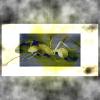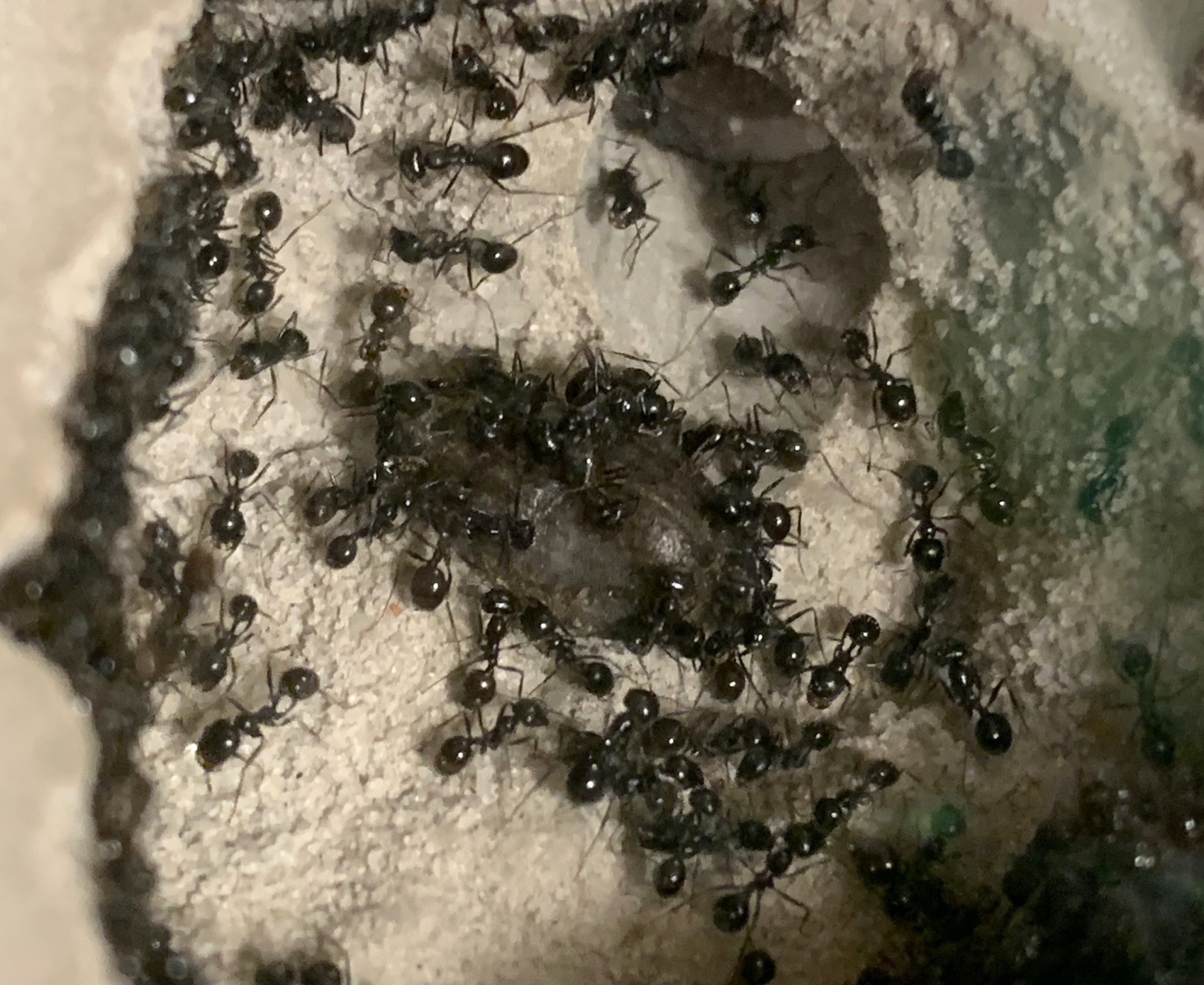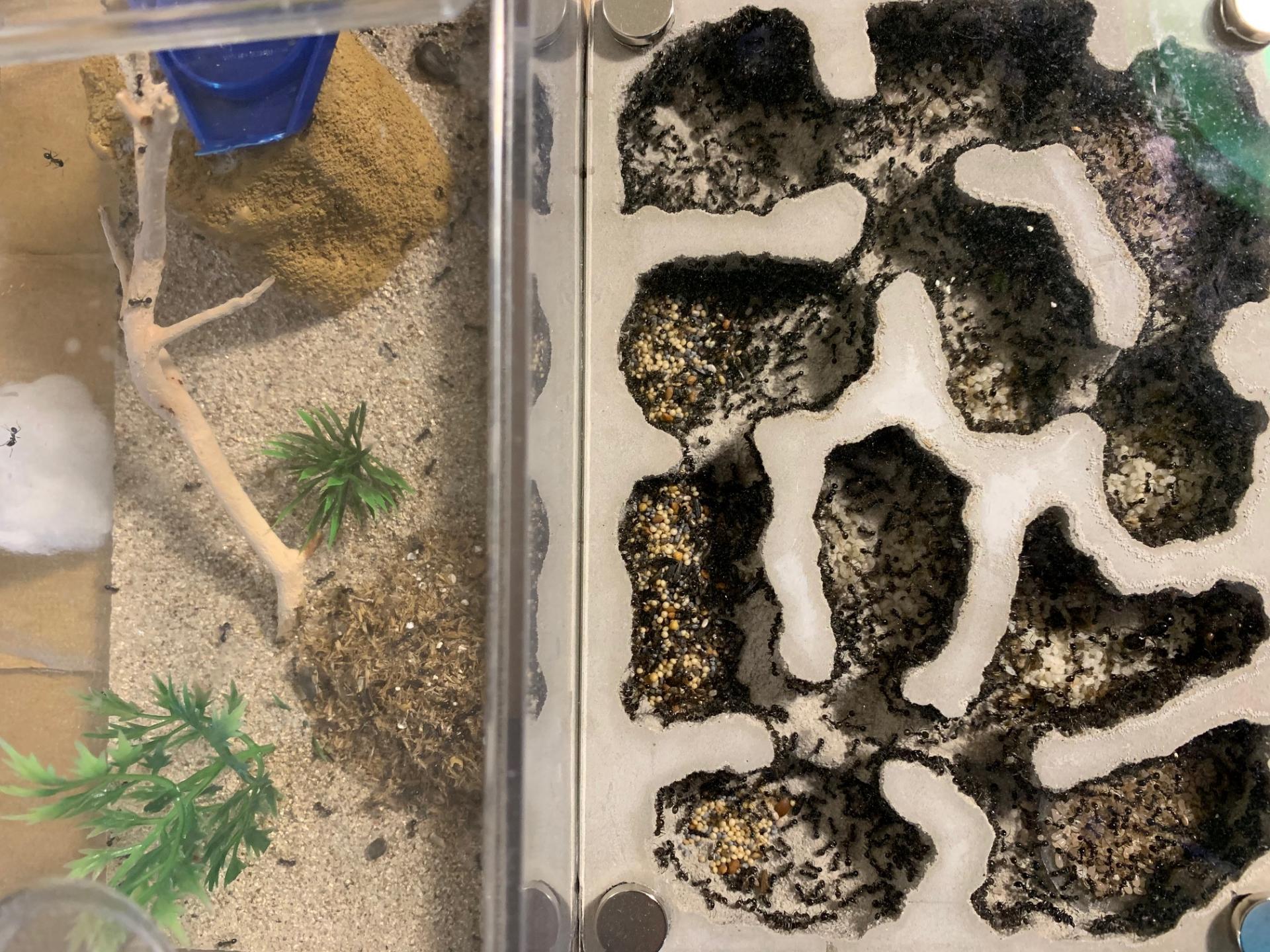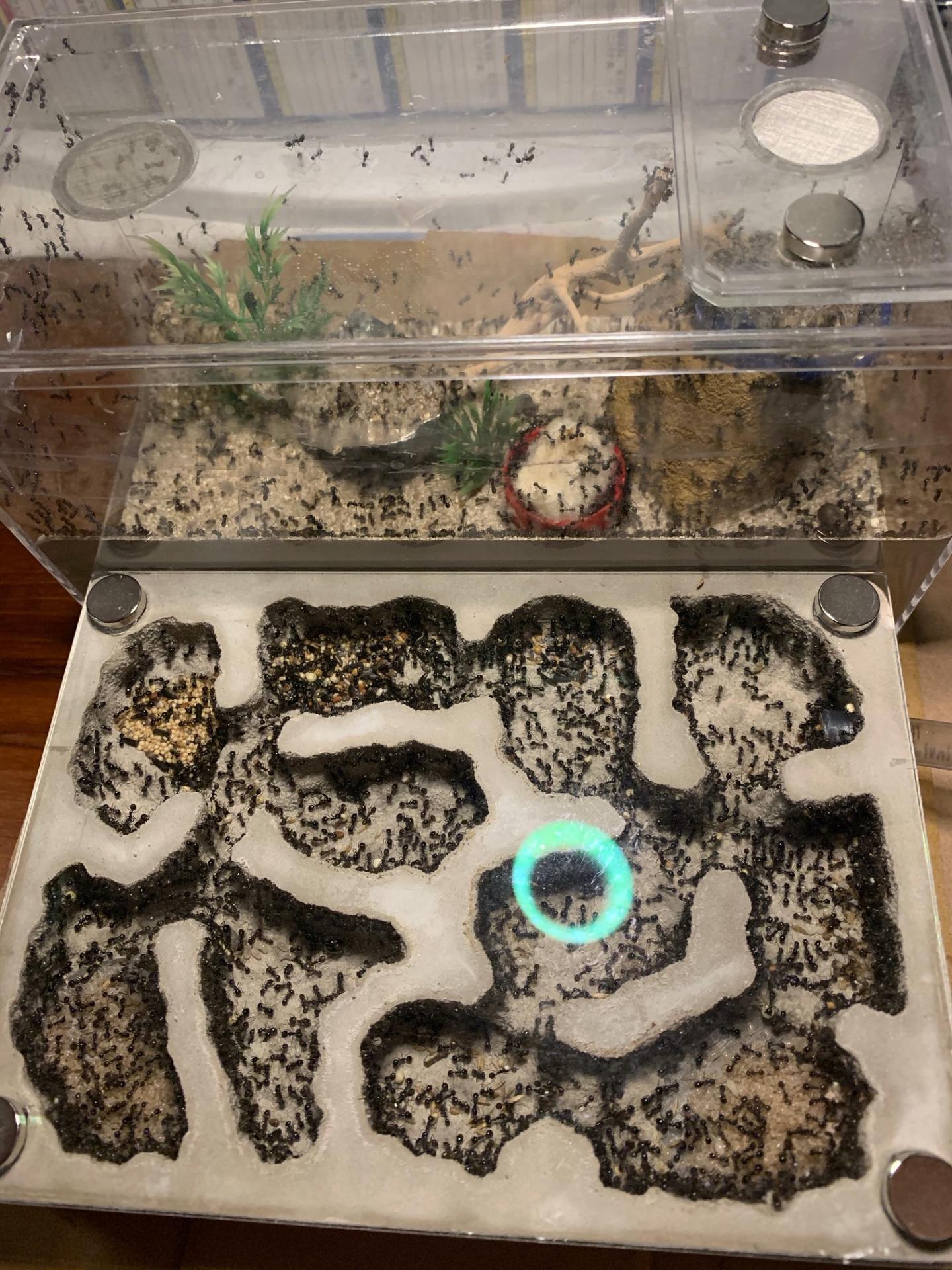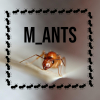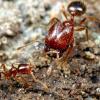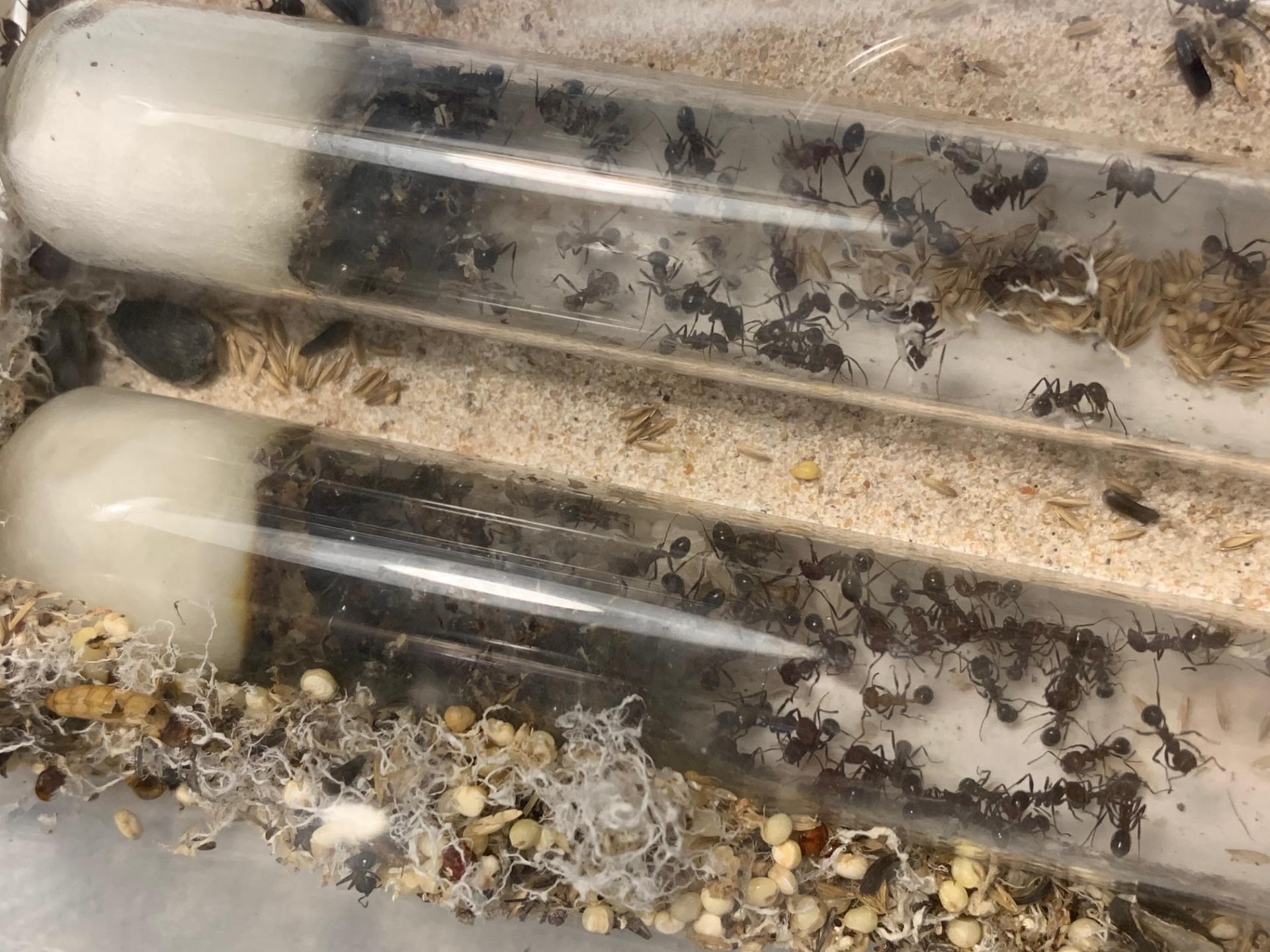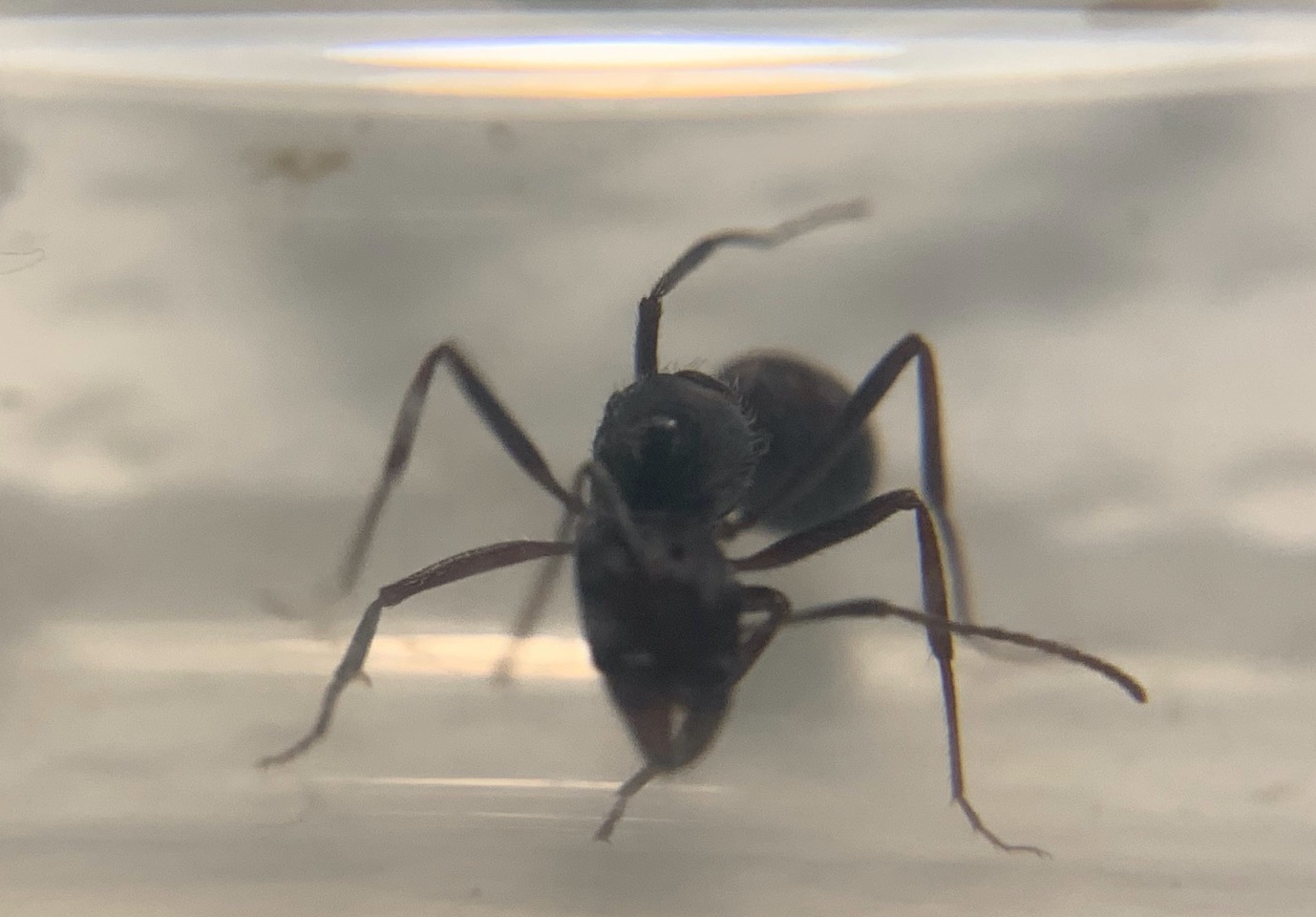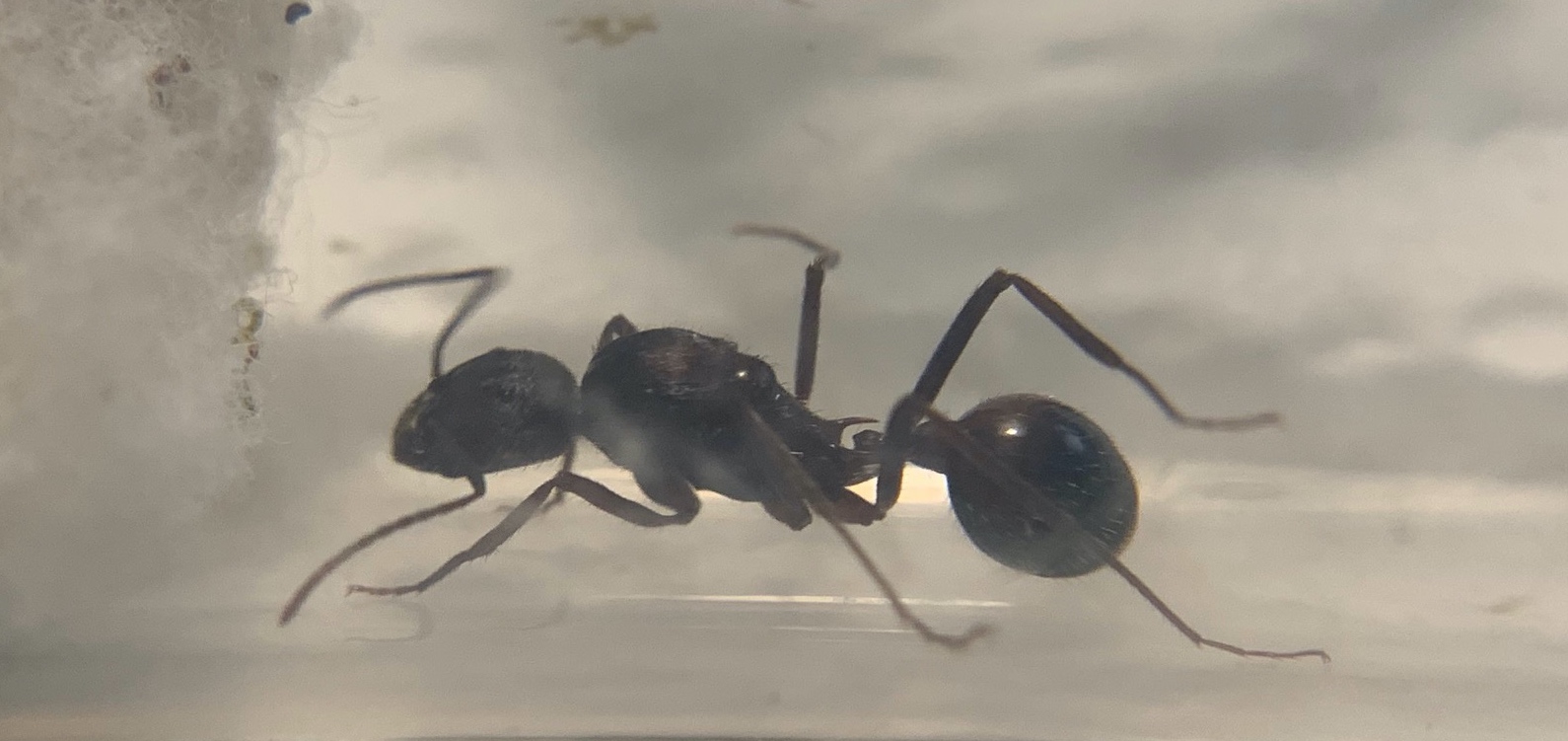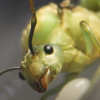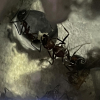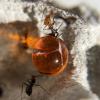What's funny is I went to check on them, and on the desk they're on, I see an escaped worker from last night painstakingly trying to drag back some ancient crumb of something possibly edible (I have no idea what, because I don't use this desk except for storage and I haven't seriously used it in over a decade).
It would be kind of cool to have (non-venomous non-spraying) ants patrolling the house, if only they didn't have the bad habit of deciding to move the queen and brood out.
ANTDrew: Yeah, I have to clear out more space on the desk AND their outworld doesn't have any connector holes, so I would have to drill something in the outworld (or possibly take out their THA nestmate from the side of the nest and use that hole instead, which would sort of suck as it's one of their primary sources of water). I do have a spare outworld that I used for fraggles a while ago.
Yeah it is fun having tubing running around the room, except of course the movement constantly makes me think "ARGENTINE INVASION!" or "ESCAPEES!" ... both of which raise my blood pressure. lol
So I have a 3 queen colony that's growing pretty fast. The more I read your journal the more I fear their future. Should I ditch them before it's too late?
Haha uh ... up to you. If you don't heat them and don't feed them a lot maybe it won't go too badly? Or break out the ant cookbooks like I'm considering....
This is why I'm not heating my 4 queen group at ALL.
Edited by OhNoNotAgain, September 15 2020 - 11:38 AM.
Past & Present
Veromessor pergandei, andrei, stoddardi; Novomessor cockerelli
Camponotus fragilis, Camponotus sansabeanus (inactive), vicinus, laevigatus/quercicola, CA02
Pogonomyrmex subnitidus, P. californicus (inactive)
Liometopum occidentale (inactive); Prenolepis imparis; Myrmecocystus mexicanus (inactive); Tetramorium sp. (inactive); Lasius sp.
Termites: Zootermopsis angusticollis, and a box of drywood termites that can't be seen
Isopods: (most no longer keeping) A. gestroi, granulatum, kluugi, maculatum, vulgare; C. murina; P. hoffmannseggi, P. haasi, P. ornatus; V. parvus, P. pruinosus, T. tomentosa
Spoods: (no longer keeping) Phidippus sp., other

